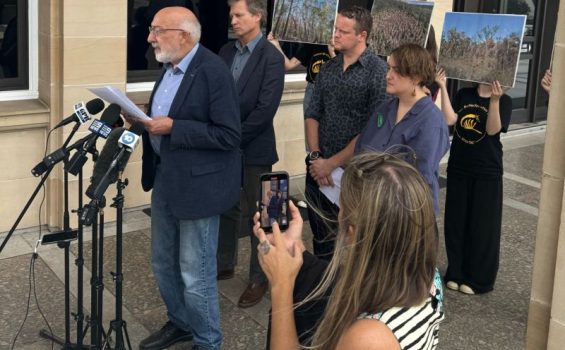
Climate Explainer: What is greenwashing?
3 August 2023
Greenwashing is a marketing tactic used by companies to create an image of environmental responsibility, while engaging in environmentally harmful practices or policies. Essentially, it involves making false or exaggerated claims about the environmental benefits of a product or service, in order to appeal to consumers who are concerned about the environment.
Why does greenwashing matter?
The effects of greenwashing on Australia’s efforts to combat climate change are potentially significant. Firstly, it can be difficult for consumers to distinguish genuine environmentally responsible companies from those that are engaging in greenwashing. This can lead to a lack of trust in companies’ claims and may discourage consumers from making environmentally responsible choices.
Secondly, greenwashing can undermine the efforts of genuine environmentally responsible companies that are investing time and resources into reducing their environmental impact. If consumers believe that all companies are engaging in greenwashing, they may not see the value in choosing products and services from companies that are genuinely working to reduce their environmental impact.
Finally, greenwashing can have a negative impact on the wider public’s understanding of environmental issues. If consumers are exposed to false or exaggerated claims about the environmental benefits of products or services, they may be misled into believing that environmental problems are not as serious as they are. This can lead to complacency and a lack of urgency in addressing climate change and other environmental issues.
Polluting globally, greenwashing locally
The fossil fuel industry in Western Australia has been accused of greenwashing in many ways, including:
1. Claiming to be investing in emissions reduction: Chevron’s Gorgon LNG project in Western Australia has been promoted as a project that will use carbon capture and storage technology to reduce emissions. However, the project’s emissions are still significant, and carbon capture and storage technology remains unproven and has not been used at scale.
2. Promoting gas as a ‘cleaner’ fuel: Life cycle studies indicate that natural gas is no cleaner than coal, due mainly to the fugitive emissions of methane, a highly potent greenhouse gas. Environmental groups argue that gas is not a long-term solution to climate change, and that the industry’s focus on gas is a way of maintaining fossil fuel dependence.
3. Funding environmental initiatives: Some fossil fuel companies in Western Australia have been accused of using their funding of environmental initiatives as a way of deflecting attention from their own environmental impact. For example, Woodside has funded several environmental initiatives, such as the Ningaloo Whale Shark Festival. This distracts from the company’s substantial contribution to climate change.
4. Using green imagery in marketing: Fossil fuel companies have been accused of using green imagery in their marketing to give the impression that they are environmentally responsible. For example, Shell’s Prelude FLNG project in Western Australia has been promoted using images of dolphins and whales, giving the impression that the project is environmentally friendly.

Overall, greenwashing can be a significant barrier to Australia’s efforts to combat climate change, by reducing public trust in companies and undermining the efforts of genuinely environmentally responsible businesses. The fossil fuel industry in Western Australia has used a range of greenwashing tactics to deflect attention from their contribution to climate change and to maintain their fossil fuel dependence. It is important for companies to be transparent and honest about their environmental impact, and for consumers to be vigilant in scrutinizing environmental claims


Discussion